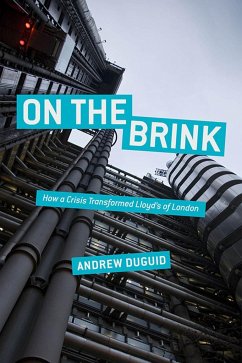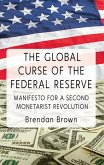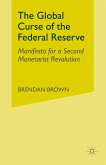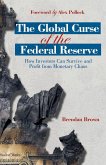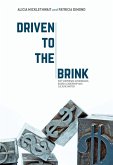Huge losses very nearly destroyed Lloyd's, a revered British institution, the world's largest insurance market. Ten thousand people faced big personal bills they thought profoundly unfair. They challenged a complacent institution, forcing it to confront its biggest ever crisis. This book tells what really happened, from the inside.
'Andrew Duguid has written a well-balanced, but at the same time racy and highly readable history of Lloyd's near-death experience and how the market was saved. Duguid is objective, but has used his inside experience well. On The Brink is a very valuable addition to the historical record of the City of London.'
- Sir Howard Davies, Former Chairman, FSA
'This is a book of first-rate importance. It shows how a small number of remarkable men rescued the Lloyd's insurance market from catastrophe- without recourse to a government bail-out.'
- Peter Oborne, Chief Political Commentator, Daily Telegraph
'Andrew Duguid's gripping account of the crisis at Lloyd's is a story of complacency, greed, regulatory failure and overly complex financial instruments. Crises are frequent; most of them are wasted. On The Brink offers a compelling story, based on wide-ranging research, of how Lloyd's showed resilience in dealing with disaster. It is essential reading for anyone interested in the turbulent history of the City of London.'
- Martin Daunton, Professor of Economic History, University of Cambridge
'Understanding what went wrong at Lloyd's was an invaluable lesson for me in what would subsequently go wrong in the global financial system. Andrew Duguid's book makes that experience available to everyone.'
- John Kay, Visiting Professor, London School of Economics
'This remarkable and brilliantly researched book chronicles how greed and shortsightedness brought Lloyd's of London to the brink of collapse in the 1990s, but how in its darkest hour it found new leaders. This small group overcame what many at the time thought were impossible odds to put in place the programme of structural and cultural reform which laid the foundations for the modern day globally important market. But the real value of the work lies in what Lloyd's tells us about today's banking crisis and in particular how the banking industry has so far failed where Lloyd's triumphed in finding new leaders capable of delivering the change in culture which is essential if the industry is to regain public trust.'
- Anthony Hilton, Financial Editor, Evening Standard
- Sir Howard Davies, Former Chairman, FSA
'This is a book of first-rate importance. It shows how a small number of remarkable men rescued the Lloyd's insurance market from catastrophe- without recourse to a government bail-out.'
- Peter Oborne, Chief Political Commentator, Daily Telegraph
'Andrew Duguid's gripping account of the crisis at Lloyd's is a story of complacency, greed, regulatory failure and overly complex financial instruments. Crises are frequent; most of them are wasted. On The Brink offers a compelling story, based on wide-ranging research, of how Lloyd's showed resilience in dealing with disaster. It is essential reading for anyone interested in the turbulent history of the City of London.'
- Martin Daunton, Professor of Economic History, University of Cambridge
'Understanding what went wrong at Lloyd's was an invaluable lesson for me in what would subsequently go wrong in the global financial system. Andrew Duguid's book makes that experience available to everyone.'
- John Kay, Visiting Professor, London School of Economics
'This remarkable and brilliantly researched book chronicles how greed and shortsightedness brought Lloyd's of London to the brink of collapse in the 1990s, but how in its darkest hour it found new leaders. This small group overcame what many at the time thought were impossible odds to put in place the programme of structural and cultural reform which laid the foundations for the modern day globally important market. But the real value of the work lies in what Lloyd's tells us about today's banking crisis and in particular how the banking industry has so far failed where Lloyd's triumphed in finding new leaders capable of delivering the change in culture which is essential if the industry is to regain public trust.'
- Anthony Hilton, Financial Editor, Evening Standard

